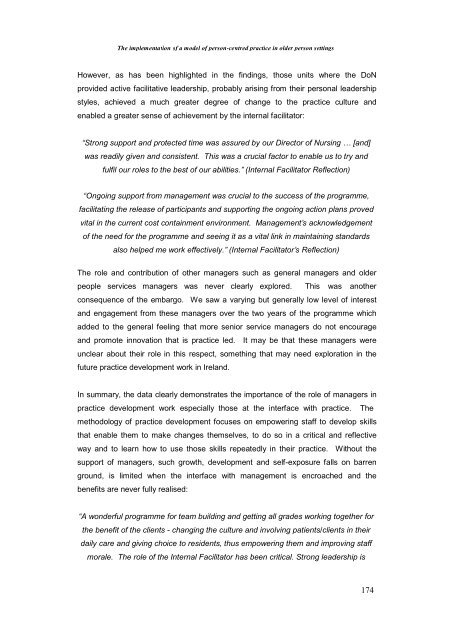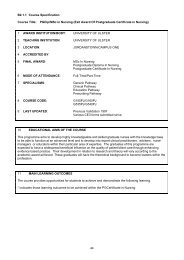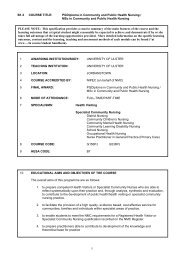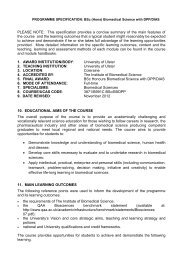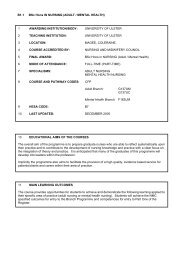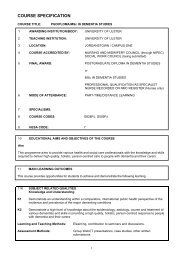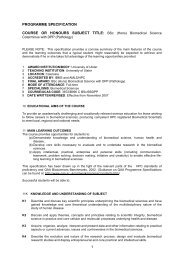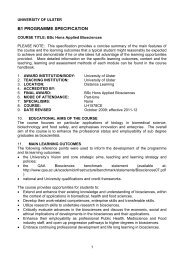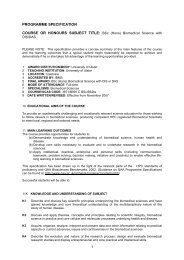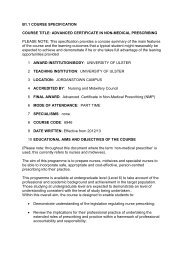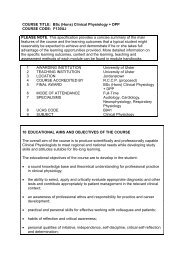The Implementation of a Model of Person-Centred Practice In Older ...
The Implementation of a Model of Person-Centred Practice In Older ...
The Implementation of a Model of Person-Centred Practice In Older ...
Create successful ePaper yourself
Turn your PDF publications into a flip-book with our unique Google optimized e-Paper software.
<strong>The</strong> implementation <strong>of</strong> a model <strong>of</strong> person-centred practice in older person settings<br />
However, as has been highlighted in the findings, those units where the DoN<br />
provided active facilitative leadership, probably arising from their personal leadership<br />
styles, achieved a much greater degree <strong>of</strong> change to the practice culture and<br />
enabled a greater sense <strong>of</strong> achievement by the internal facilitator:<br />
“Strong support and protected time was assured by our Director <strong>of</strong> Nursing … [and]<br />
was readily given and consistent. This was a crucial factor to enable us to try and<br />
fulfil our roles to the best <strong>of</strong> our abilities.” (<strong>In</strong>ternal Facilitator Reflection)<br />
“Ongoing support from management was crucial to the success <strong>of</strong> the programme,<br />
facilitating the release <strong>of</strong> participants and supporting the ongoing action plans proved<br />
vital in the current cost containment environment. Management’s acknowledgement<br />
<strong>of</strong> the need for the programme and seeing it as a vital link in maintaining standards<br />
also helped me work effectively.” (<strong>In</strong>ternal Facilitator’s Reflection)<br />
<strong>The</strong> role and contribution <strong>of</strong> other managers such as general managers and older<br />
people services managers was never clearly explored. This was another<br />
consequence <strong>of</strong> the embargo. We saw a varying but generally low level <strong>of</strong> interest<br />
and engagement from these managers over the two years <strong>of</strong> the programme which<br />
added to the general feeling that more senior service managers do not encourage<br />
and promote innovation that is practice led. It may be that these managers were<br />
unclear about their role in this respect, something that may need exploration in the<br />
future practice development work in Ireland.<br />
<strong>In</strong> summary, the data clearly demonstrates the importance <strong>of</strong> the role <strong>of</strong> managers in<br />
practice development work especially those at the interface with practice. <strong>The</strong><br />
methodology <strong>of</strong> practice development focuses on empowering staff to develop skills<br />
that enable them to make changes themselves, to do so in a critical and reflective<br />
way and to learn how to use those skills repeatedly in their practice. Without the<br />
support <strong>of</strong> managers, such growth, development and self-exposure falls on barren<br />
ground, is limited when the interface with management is encroached and the<br />
benefits are never fully realised:<br />
“A wonderful programme for team building and getting all grades working together for<br />
the benefit <strong>of</strong> the clients - changing the culture and involving patients/clients in their<br />
daily care and giving choice to residents, thus empowering them and improving staff<br />
morale. <strong>The</strong> role <strong>of</strong> the <strong>In</strong>ternal Facilitator has been critical. Strong leadership is<br />
174


